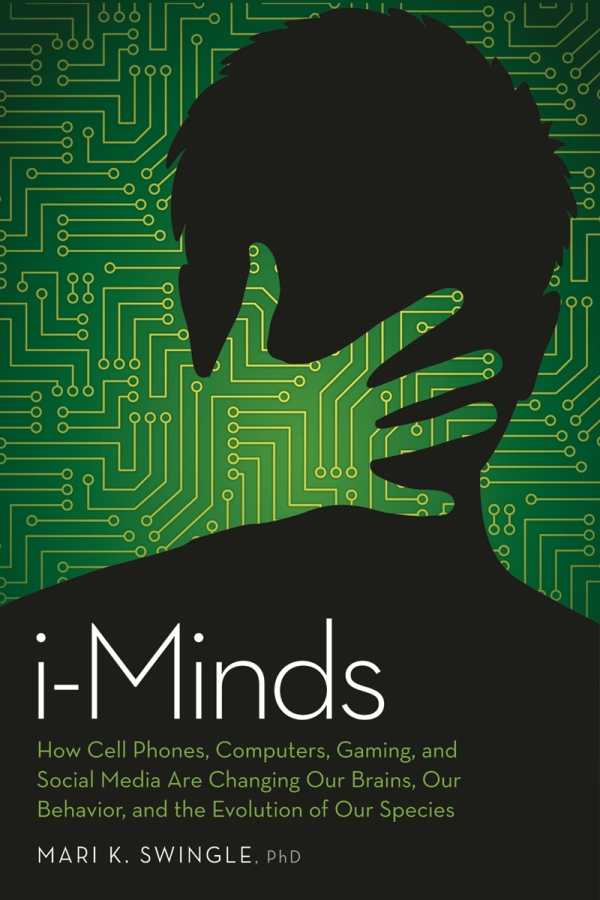i-Minds
How Cell Phones, Computers, Gaming, and Social Media are Changing Our Brains, Our Behavior, and the Evolution of Our Species
- 2016 INDIES Winner
- Bronze, Psychology (Adult Nonfiction)
This research-based book by a psychoneurophysiologist offers an important examination of the effects of interconnectivity.
Anyone who has formed a dependency on a smartphone, tablet, or 24-hour digital connectivity would do well to read i-Minds, Mari K. Swingle’s eye-opening, and at times unsettling, book. It is both a palatable, compelling exploration of the impact of digital media on the human brain as well as an impressive piece of research. Using her own clinical observations, Swingle conclusively demonstrates that Internet addiction significantly switches brain function.
The point of Swingle’s book, however, is to broaden the scope of her observations to encompass everyday users of “i-tech,” the author’s term for interactive technology, not just those who are addicted—or as she puts it, to examine those who are affected by “technological integration versus technological interference.” The author addresses the topic both biologically (what goes on in our brains) and sociologically, from childhood to adulthood. A nice touch is the addition of sections called “Scientific Corner,” in which Swingle supports the text with specific references to scientific research.
Particularly fascinating is Swingle’s discussion of the generation of “i-kids” who have grown up with digital devices. She notes, for example, that some parents “use the medium as an electronic babysitter,” and that children who are entrenched in digital media from a young age may be missing out on key developmental experiences, such as live play.
The impact of digital media on adults is also covered in the book; Swingle discusses such topics as the Internet’s role in sex and sexuality, interpersonal communications, friendships, and community. Some of her observations are powerful and thought-provoking; for example, “We act differently and treat people differently online,” and “Every hour we spend on our computers reduces our interpersonal contact by one-half hour and along with it our ability to interpret subtle nonverbal messages. It also makes us progressively socially awkward.”
While Swingle makes an eloquent case for the fact that i-media is “rewiring our brains,” she remains nonjudgmental and scientifically balanced in her perspective. This approach makes i-Minds all the more essential as a contemporary study well worth reading.
Reviewed by
Barry Silverstein
Disclosure: This article is not an endorsement, but a review. The publisher of this book provided free copies of the book to have their book reviewed by a professional reviewer. No fee was paid by the publisher for this review. Foreword Reviews only recommends books that we love. Foreword Magazine, Inc. is disclosing this in accordance with the Federal Trade Commission’s 16 CFR, Part 255.

